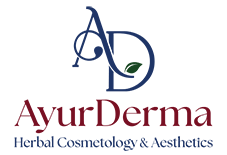Understanding Herbal Cosmetology: Ingredients and Benefits
Herbal cosmetology is rooted in the utilization of natural ingredients derived from plants, herbs, and botanical extracts to enhance beauty and skincare. This approach emphasizes the synergy between nature and aesthetics, offering a plethora of benefits through the incorporation of various natural compounds. Prominent ingredients such as aloe vera, chamomile, lavender, and green tea are staples in herbal beauty products, each bringing unique properties and advantages to the table.
Aloe vera, renowned for its soothing and moisturizing properties, is rich in vitamins, minerals, and antioxidants. It is sourced from the succulent leaves of the aloe plant, known for its gel-like substance that contains beneficial compounds such as polysaccharides and glycoproteins. These active compounds promote skin hydration, reduce inflammation, and accelerate healing, making aloe vera a favored ingredient in skincare formulations.
Chamomile, a gentle yet potent herb, is widely used for its calming and anti-inflammatory effects. Extracted from the flowers of the chamomile plant, it contains flavonoids and essential oils that help soothe irritated skin and reduce redness. Lavender, another versatile herb, is prized for its antiseptic and healing properties. The essential oil derived from lavender flowers is rich in linalool and linalyl acetate, which aid in skin regeneration and provide a calming aroma.
Green tea, abundant in polyphenols and catechins, offers powerful antioxidant and anti-aging benefits. Sourced from the leaves of the Camellia sinensis plant, green tea extract helps protect the skin from free radical damage, enhances skin elasticity, and reduces the appearance of fine lines and wrinkles. The scientific basis for the efficacy of these herbal ingredients lies in their bioactive compounds, which interact with the skin at a cellular level to promote overall skin health.
The benefits of using herbal cosmetics extend beyond their individual properties. By opting for natural beauty solutions, consumers reduce the risk of allergic reactions and avoid exposure to harmful chemicals commonly found in synthetic products. Additionally, the environmental sustainability of herbal cosmetics is a significant advantage, as these products are often biodegradable and sourced from eco-friendly practices.
When comparing herbal versus synthetic cosmetics, the growing consumer preference for natural beauty solutions becomes evident. Herbal cosmetics offer a safer, more holistic approach to skincare, aligning with the increasing demand for clean, green, and effective beauty products. As more individuals seek to embrace a natural approach to beauty, the synergy of herbal cosmetology and aesthetics continues to flourish, providing a harmonious blend of efficacy and sustainability.
Aesthetics and Holistic Beauty: Integrating Herbal Cosmetology into Modern Skincare Routines
Incorporating herbal cosmetology into modern skincare routines offers a holistic approach that combines the best of nature with contemporary skincare science. Herbal beauty products, derived from natural ingredients, provide numerous benefits tailored to various skin types and concerns. Here, we explore practical steps to integrate these products into daily skincare regimens effectively.
For facial cleansers, herbal options such as chamomile and green tea cleansers are excellent for soothing sensitive skin and reducing inflammation. These ingredients gently cleanse without stripping the skin of its natural oils. For oily and acne-prone skin, cleansers containing tea tree oil and neem provide antibacterial properties, helping to clear breakouts and prevent future flare-ups.
Toners play a crucial role in balancing the skin’s pH and preparing it for further treatment. Witch hazel and rose water toners are favored for their astringent and hydrating properties, making them suitable for various skin types. These herbal toners help tighten pores and refresh the skin, providing a smooth base for subsequent products.
Moisturizers with herbal components like aloe vera and calendula are ideal for their hydrating and healing properties. Aloe vera is known for its soothing effect, making it perfect for dry or irritated skin, while calendula offers anti-inflammatory benefits that promote skin repair.
Herbal masks and serums can target specific skin concerns such as dullness, aging, and pigmentation. Turmeric masks are renowned for their brightening effects, and serums infused with ginseng or licorice root can improve skin tone and reduce the appearance of fine lines and wrinkles.
Professional aestheticians incorporate herbal cosmetology into treatments such as facials, massages, and body wraps. These treatments often use herbal-infused oils and extracts to enhance the therapeutic effects. For instance, lavender oil is frequently used in massages for its calming properties, while body wraps with seaweed and clay can detoxify and rejuvenate the skin.
A holistic approach to beauty emphasizes the significance of inner wellness, nutrition, and stress management in achieving radiant skin. Consuming a balanced diet rich in antioxidants, staying hydrated, and practicing mindfulness and relaxation techniques can significantly impact overall aesthetic health.
Case studies and testimonials highlight the successful integration of herbal cosmetology in skincare practices. For example, individuals with chronic skin conditions such as eczema or rosacea have reported significant improvements after incorporating herbal products into their routines, showcasing the transformative potential of natural ingredients.
